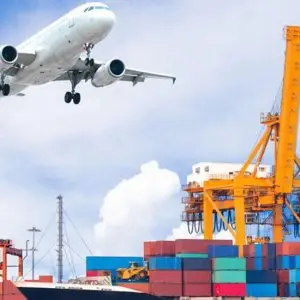General Logistic Services: The Heart of Efficient Supply Chains
Introduction
In today’s interconnected world, logistics services play a critical role in ensuring that goods move smoothly from point A to point B. General logistic services encompass a wide range of activities, including transportation, warehousing, inventory management, and distribution. This blog post will delve into the importance of general logistic services, current trends shaping the industry, challenges faced, and the future outlook for logistics.
Understanding General Logistic Services
Key Components of Logistics
General logistic services involve several key components that work together to streamline the supply chain process:
- Transportation: This is the movement of goods via various modes, including road, rail, air, and sea. Transportation logistics involves selecting the most efficient routes and modes to minimize costs and delivery times.
- Warehousing: Storage facilities play a significant role in logistics. Warehousing services include inventory management, order fulfillment, and the handling of inbound and outbound shipments.
- Inventory Management: This involves monitoring stock levels, managing replenishment, and ensuring that products are available when needed. Effective inventory management helps prevent stockouts and overstock situations.
- Distribution: The final stage of logistics where goods are delivered to the end customer. This includes last-mile delivery, which is crucial for customer satisfaction.
Importance of General Logistic Services
The importance of logistics services cannot be overstated. Here are a few key reasons why they are essential:
- Supply Chain Efficiency: Effective logistics services streamline operations and reduce lead times, enabling businesses to respond quickly to market demands.
- Cost Reduction: By optimizing transportation and inventory management, companies can significantly reduce operational costs, leading to improved profitability.
- Customer Satisfaction: Timely and accurate deliveries enhance customer experiences, fostering loyalty and repeat business.
- Global Trade Facilitation: Logistics services support international trade by managing the complexities of cross-border transportation and customs compliance.
Current Trends in the Logistics Industry
Technological Advancements
The logistics industry is rapidly evolving due to technological innovations:
- Automation and Robotics: Warehouses are increasingly using automation for picking, packing, and sorting to improve efficiency and reduce labor costs.
- Data Analytics: Big data and analytics tools are being used to forecast demand, optimize routes, and improve inventory management.
- Blockchain Technology: This technology enhances transparency and security in the supply chain by providing a tamper-proof record of transactions and shipments.
Sustainability Initiatives
As environmental concerns grow, logistics companies are adopting sustainable practices:
- Green Logistics: This includes using eco-friendly packaging, optimizing transportation routes to reduce fuel consumption, and adopting electric vehicles.
- Carbon Footprint Reduction: Many logistics providers are working to measure and reduce their carbon emissions through various initiatives.
E-commerce Growth
The rise of e-commerce has transformed logistics:
- Increased Demand for Last-Mile Delivery: As consumers expect faster deliveries, logistics providers are focusing on optimizing last-mile solutions.
- Omnichannel Distribution: Companies are integrating online and offline channels to provide customers with a seamless shopping experience.
Challenges in the Logistics Industry
Despite its importance and growth, the logistics industry faces several challenges:
- Supply Chain Disruptions: Events like the COVID-19 pandemic highlighted vulnerabilities in global supply chains, leading to delays and increased costs.
- Labor Shortages: Finding skilled workers in logistics and transportation is becoming increasingly difficult, impacting service levels.
- Regulatory Compliance: Navigating the complex regulatory landscape, especially for international logistics, can be challenging for companies.
The Future of General Logistic Services
The future of general logistic services will likely be shaped by several key trends:
- Increased Focus on Technology: As technology continues to advance, logistics providers will increasingly adopt automation, AI, and machine learning to enhance operations.
- Sustainability as a Priority: The push for greener logistics will lead to more investments in sustainable practices and technologies.
- Enhanced Customer Experience: Companies will focus on improving customer experiences through better tracking systems, flexible delivery options, and personalized services.
Conclusion
General logistic services are the backbone of efficient supply chains, facilitating the movement of goods and supporting economic growth. As the industry evolves, logistics providers must adapt to technological advancements, sustainability initiatives, and changing customer expectations. At Ikodan, we recognize the significance of logistics in the supply chain and are committed to providing high-quality building materials that support logistics operations. For more information about our products and services, visit our website or contact us today! Together, we can navigate the complexities of the logistics landscape and drive success in your business.

